The Battle for East Lake in Wuhan
Hundreds of Wuhan citizens are fighting to save the city’s East Lake Ecological Tourist Scenic Area (东湖生态旅游风景区) from plans to fill in part of the lake and develop the area commercially. Villagers and fishery workers evicted by the development have been negotiating with the local government for compensation since December, in the face of physical assault by hired thugs. And last week hundreds of urban residents and students planned a protest march, but this was canceled after police visited the homes of organizers, students were warned against participating by school authorities, and at least one organizer had his internet cut off. Representatives of the development company and the local government held a press conference denying that any part of the lake would be filled and claiming that the development would not hurt the area’s ecosystem, and information to the contrary has been removed from websites. But critics of the plan want to continue the fight and are presently preparing protest activities including a petition and postcards to be sent to the central government, artistic performances, a campaign to pitch tents and camp out at the development site, and a newsletter and internet forum to enable public discussion of the issue.
On March 25, the Guangzhou-based newspaper Time Weekly (时代周报) published a report called “An Investigation into OCT’s Development of East Lake in Wuhan” (武汉华侨城开发东湖调查), which disclosed information leaked by government officials disgruntled with corruption in the development proceedings. According to the report, in December 2009 the local government signed a long-term lease with the state-owned real estate development company OCT (Overseas Chinese Town) for 211 hectares (3,167 mu), including 30 hectares (450 mu) of the lake itself, to the tune of 4.3 billion yuan (630 million US dollars) – the most lucrative lease of the year for rapidly-expanding Wuhan. (Land in China cannot be sold and so is leased, usually for 70 years at a time.) This transaction was illegal since much of the leased area falls within the nationally-protected East Lake Scenic Area, and the local government did not obtain permission to develop the land from the central government. Moreover the entire process of negotiation and planning was conducted behind closed doors over several months time, without outside appraisal of possible ecological or social consequences. OCT’s plan includes an amusement park (Happy Valley) and upscale shopping areas, hotels and condominiums (see sketches below).
Two villages and a fishery have already been evicted and demolished, starting immediately after the lease was signed last December, and a third villager is in the process of eviction. Villagers and fishery workers claim that part of the compensation promised by OCT has been pocketed by government officials, and when they petitioned the government about this they were assaulted by hired thugs. Most of these petitioners have backed down, but about 50 families in the third village are still holding out. All of this went largely unnoticed by Wuhan’s urban population and the news media for three months.
When Time Weekly published its report on March 25, within two hours of its online publication over a thousand comments had been posted about it, according to the author’s blog. The chief concern among online critics of the plan was the possible ecological consequences, since water pollution and algae outbreaks have been increasing rapidly throughout China in recent years, rendering half of China’s population and two-thirds of China’s rural population unable to access safe drinking water, according to some reports. In 2007 an algae outbreak (attributed largely to synthetic fertilizers) in Tai lake on China’s east coast rendered the water undrinkable by two million people in Wuxi. In Wuhan, critics of the East Lake development plan also point to the plight of another local lake, Tangxun. On the 1-to-5 scale of water quality, Tangxun went from 1 to 4 within a decade of development, and experts estimate that even the most concerted effort to reverse the lake’s pollution would take at least another decade just to restore it to level 3.
In addition to concerns about the quality of water for consumption, critics also highlight East Lake’s value as Wuhan’s only body of water safe for swimming now that Tangxun and other lakes have been polluted. One critic ironically points out that only six years ago an environmental expert warned Tangxun might become as polluted as East Lake, whereas now Tangxun has become so toxic that East Lake seems good in comparison!
Finally, critics are concerned about gentrification, as the development plan would transform the lake and its environs from a peaceful, clean place where anyone can enjoy the natural world for free (or a small entrance fee for some of the parks) to an expensive, noisy and artificial resort for the rich. In this sense some commentators emphasize that the effort to protect East Lake differs from recent comparable protests in China since its goal is not to protect private property or relocate environmental pollution farther away from the city, but to prevent public property from privatization.
Critics of the development plan formed an internet group on QQ (China’s most popular social networking service), which soon reached the maximum 100 members per group allowed by QQ and spilled over into several more groups. According to one group manager, although the group was set so that new members must await approval before joining the group, she noticed several new members mysteriously appeared in the group without going through the approval process, and she suspects they were police. Through group discussion the idea emerged of “going for a stroll” (散步), that is, staging a protest march without banners and, when questioned, claiming everyone was “just going for a stroll.” This tactic has been used successfully several times since 2007, when thousands of Xiamen citizens took to the streets against plans to build a chemical plant in the city. (In the Xiamen case most of the mobilization was done via cellular telephone text messaging, but some other protest attempts have been thwarted by police control over the phone networks, and this may be one reason QQ was used in Wuhan.) But last Thursday and Friday police visited the homes of people from the QQ groups and convinced them not to join the protest planned for Saturday. Student counselors (辅导员) at several universities in Wuhan were told, “According to higher authorities, due to the ‘East Lake incident,’ some students are organizing collective marches, creating many unstable factors. In order to strengthen the safe and stable functioning of the school, please strengthen your monitoring of the campus, pay close attention to the students’ tendencies, if you encounter activities such as collective marches, it is imperative to immediately notify the student affairs office.” In the end only a few people showed up for the demonstration, so they decided to call it off.
Internet discussion about the development plan seems to have declined, and organizers blame this partly on a combination of fear of reprisal and state control over the media, with information contrary to OCT’s press statement being removed from the internet. Some activists are trying to remedy this situation by making a newsletter explaining the situation and postcards petitioning the central government, which they plan to distribute by hand throughout the city. In preparation they are conducting research to strengthen their case, including interviews with the evicted East Lake residents and environmental experts. Other activists plan to pitch tents and camp out at the development site, while still others are preparing artistic performances to raise awareness about the issue.
Below are some images from related web postings:
(1) an aerial photo of East Lake with the parts that have already been filled indicated in red and white
(2) sketches of what East Lake will look like after development
(3) a photo of Tangxun lake after ten years of similar development
For more information (all in Chinese so far) see:
http://wodedonghu.cpanel.my/ (blocked in China)
http://www.douban.com/people/desireeyac/notes

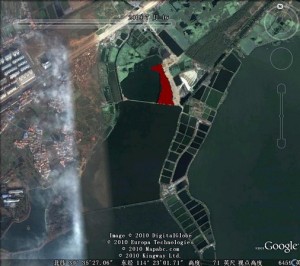
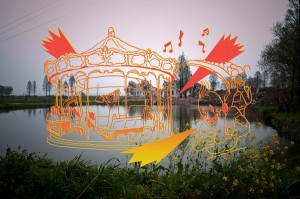
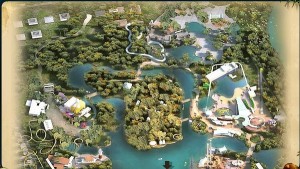
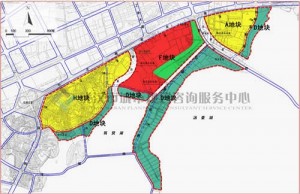
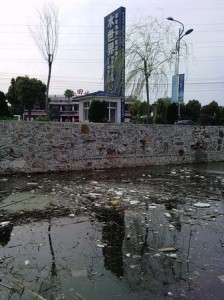
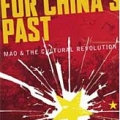
 "Revolutionaries are
"Revolutionaries are
Pingback: The battle for East Lake in Wuhan | Pramavi
Pingback: Global Voices Online » China: Strolling to save East Lake in Wuhan repressed
Pingback: Il nostro Donghu 我们的东湖 « Disorientamenti
Pingback: Global Voices in Italiano » Cina: bloccate le proteste per salvare l’East Lake a Wuhan
An interview with three of the organizers has been posted here. It’s in Chinese - I might translate this into English, but I’m also waiting to learn about how things develop in the next few days.
Italian translation of this report here:
http://www.carta.org/campagne/dal+mondo/asia/19417
The protesters have set up an interactive website about the campaign:
http://www.wmddh.net/
The website includes a public discussion board, videos, reports about the development project and the campaign against it, and some theoretical articles about public space - including a Chinese translation of an article by Chris Connery.
English report on what has happened in the past couple months, including a “social drama” on the lake and a memorial wall:
http://special.globaltimes.cn/2010-07/557099.html
Also see the earlier (Chinese) video about the issue:
http://www.tudou.com/programs/view/PLgkvkPohCk
Now the campaign website also has a Chinese translation of “Organizing for the Anti-Capitalist Transition” by David Harvey:
http://www.wmddh.net/?p=868
Pingback: Mobilisation artistique pour la protection du lac de l’Est
Pingback: china study group » Blog Archive » HF Hung on class relations and the democracy movement in HK
Pingback: china study group » Blog Archive » The Alternative Education of a Chinese Punk
The lake is certainly a very popular swimming area in the summer. A lot cleaner than the Yangtze (where some people swim too, nonetheless).
I just hope the lake will stay relatively clean and accessible to everyone in Wuhan.
Pingback: Meetings at Womenija Youth Autonomy Lab « Continental Drift
Pingback: Wu Mu Cosmology « Continental Drift